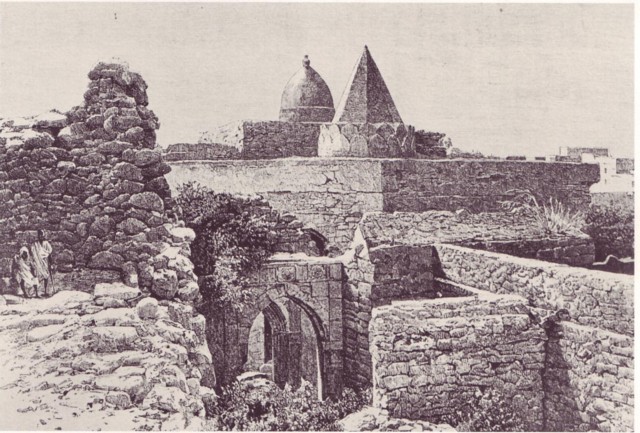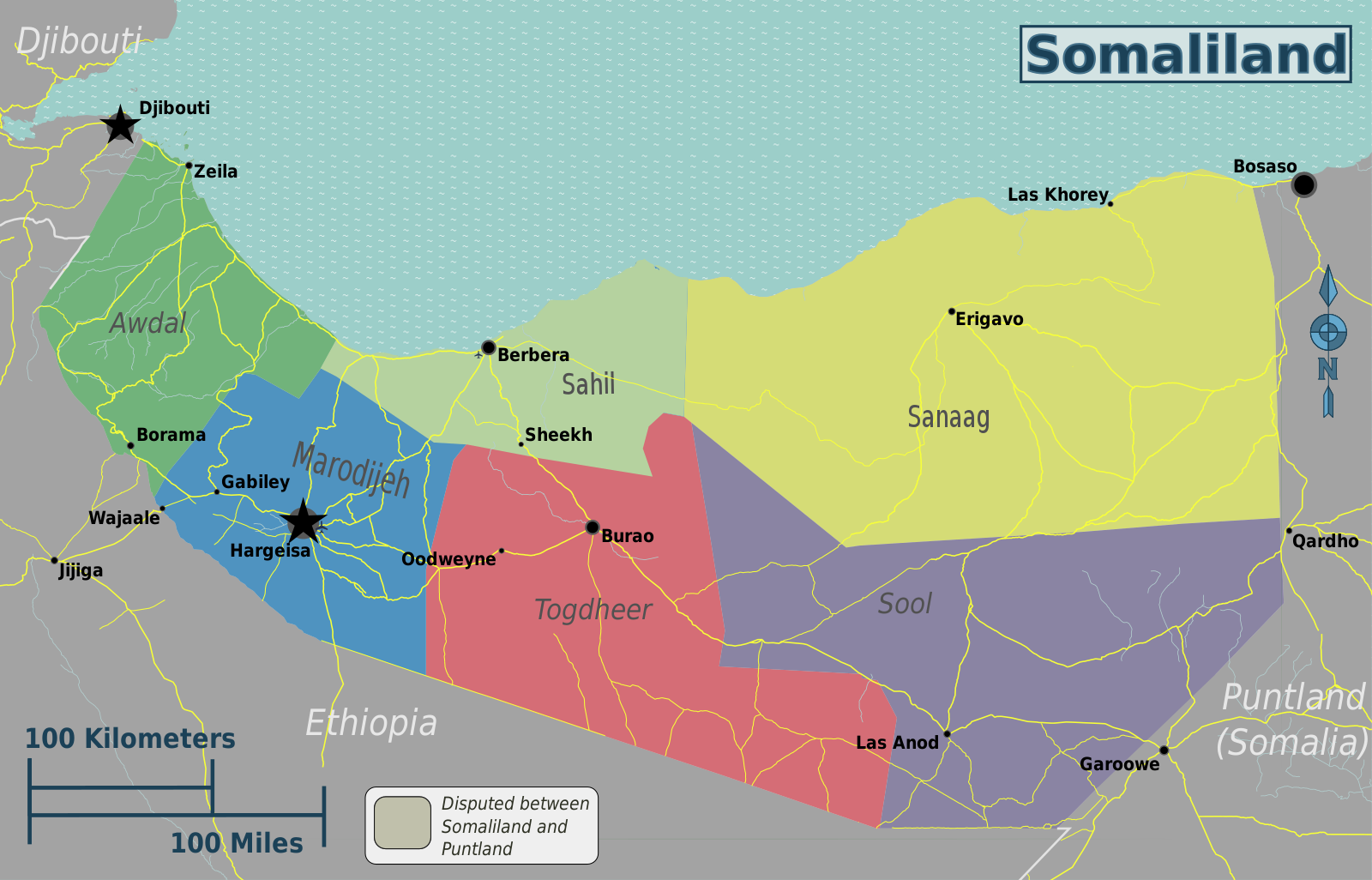|
Dahir Rayale Kahin
Dahir Riyale Kahin ( so, Daahir Riyaale Kaahin, ar, ظاهر ريالي كاهن) (born 12 March 1952) is a Somaliland politician who was President of Somaliland from 2002 to 2010. He previously served as a senior officer in the National Security Service in Somalia, and he was Vice President of Somaliland from 1997 to 2002. Personal life Kahin was born in the town of Quljeed, situated in the northwestern Awdal region of Somaliland. He hails from the Jibreel Younis sub-clan of the Gadabuursi clan. He was educated in Amoud, and was later trained in Mogadishu. Career Early career Kahin's previous posts included a diplomatic position at the Somali Embassy in Djibouti. In the last years of the Siad Barre government, during the 1980s, Kahin was the highest-ranking National Security Service (NSS) officer in Berbera.Human Rights Watch (Organization), Chris Albin-Lackey, ''Hostages to peace: threats to human rights and democracy in Somaliland'', (Human Rights Watch: 2009), p.1 ... [...More Info...] [...Related Items...] OR: [Wikipedia] [Google] [Baidu] |
Ahmed Yusuf Yasin
Ahmed Yusuf Yasin ( so, Axmed Yuusuf Yaasiin) (born 1957) is a Somaliland politician and lawyer who was Vice President of Somaliland, from 2002 until 2010 and he was the second chairman of UDUB party. He hails from the Issa Musa (Adan Issa) sub-division of the Habr Awal Isaaq The Isaaq (also Isaq, Ishaak, Isaac) ( so, Reer Sheekh Isxaaq, ar, بني إسحاق, Banī Isḥāq) is a Somali clan. It is one of the major Somali clans in the Horn of Africa, with a large and densely populated traditional territory. Pe ... clan. He was appointed as Vice President in 2002. References 1957 births Living people Vice presidents of Somaliland Somaliland politicians People from Hargeisa Issa Musa {{Somaliland-politician-stub ... [...More Info...] [...Related Items...] OR: [Wikipedia] [Google] [Baidu] |
Mogadishu
Mogadishu (, also ; so, Muqdisho or ; ar, مقديشو ; it, Mogadiscio ), locally known as Xamar or Hamar, is the capital and List of cities in Somalia by population, most populous city of Somalia. The city has served as an important port connecting traders across the Indian Ocean for millennia, and has an estimated population of 2,388,000 (2021). Mogadishu is located in the coastal Banadir region on the Indian Ocean, which unlike other Somali regions, is considered a municipality rather than a (federal state). Mogadishu has a long history, which ranges from the Ancient history, ancient period up until the present, serving as the capital of the Sultanate of Mogadishu in the 9th-13th century, which for many centuries controlled the Indian Ocean gold trade, and eventually came under the Ajuran Empire in the 13th century which was an important player in the medieval Silk Road maritime trade. Mogadishu enjoyed the height of its prosperity during the 14th and 15th centuries a ... [...More Info...] [...Related Items...] OR: [Wikipedia] [Google] [Baidu] |
People From Awdal
A person ( : people) is a being that has certain capacities or attributes such as reason, morality, consciousness or self-consciousness, and being a part of a culturally established form of social relations such as kinship, ownership of property, or legal responsibility. The defining features of personhood and, consequently, what makes a person count as a person, differ widely among cultures and contexts. In addition to the question of personhood, of what makes a being count as a person to begin with, there are further questions about personal identity and self: both about what makes any particular person that particular person instead of another, and about what makes a person at one time the same person as they were or will be at another time despite any intervening changes. The plural form "people" is often used to refer to an entire nation or ethnic group (as in "a people"), and this was the original meaning of the word; it subsequently acquired its use as a plural form of ... [...More Info...] [...Related Items...] OR: [Wikipedia] [Google] [Baidu] |
Living People
Related categories * :Year of birth missing (living people) / :Year of birth unknown * :Date of birth missing (living people) / :Date of birth unknown * :Place of birth missing (living people) / :Place of birth unknown * :Year of death missing / :Year of death unknown * :Date of death missing / :Date of death unknown * :Place of death missing / :Place of death unknown * :Missing middle or first names See also * :Dead people * :Template:L, which generates this category or death years, and birth year and sort keys. : {{DEFAULTSORT:Living people 21st-century people People by status ... [...More Info...] [...Related Items...] OR: [Wikipedia] [Google] [Baidu] |
21st-century Somaliland Politicians
The 1st century was the century spanning AD 1 ( I) through AD 100 ( C) according to the Julian calendar. It is often written as the or to distinguish it from the 1st century BC (or BCE) which preceded it. The 1st century is considered part of the Classical era, epoch, or historical period. The 1st century also saw the appearance of Christianity. During this period, Europe, North Africa and the Near East fell under increasing domination by the Roman Empire, which continued expanding, most notably conquering Britain under the emperor Claudius (AD 43). The reforms introduced by Augustus during his long reign stabilized the empire after the turmoil of the previous century's civil wars. Later in the century the Julio-Claudian dynasty, which had been founded by Augustus, came to an end with the suicide of Nero in AD 68. There followed the famous Year of Four Emperors, a brief period of civil war and instability, which was finally brought to an end by Vespasian, ninth Roman emperor, a ... [...More Info...] [...Related Items...] OR: [Wikipedia] [Google] [Baidu] |
21st-century Presidents Of Somaliland
The 1st century was the century spanning AD 1 (Roman numerals, I) through AD 100 (Roman numerals, C) according to the Julian calendar. It is often written as the or to distinguish it from the 1st century BC (or BCE) which preceded it. The 1st century is considered part of the Classical era, epoch, or History by period, historical period. The 1st century also saw the Christianity in the 1st century, appearance of Christianity. During this period, Europe, North Africa and the Near East fell under increasing domination by the Roman Empire, which continued expanding, most notably conquering Britain under the emperor Claudius (AD 43). The reforms introduced by Augustus during his long reign stabilized the empire after the turmoil of the previous century's civil wars. Later in the century the Julio-Claudian dynasty, which had been founded by Augustus, came to an end with the suicide of Nero in AD 68. There followed the famous Year of Four Emperors, a brief period of civil war and inst ... [...More Info...] [...Related Items...] OR: [Wikipedia] [Google] [Baidu] |
1952 Births
Year 195 ( CXCV) was a common year starting on Wednesday (link will display the full calendar) of the Julian calendar. At the time, it was known as the Year of the Consulship of Scrapula and Clemens (or, less frequently, year 948 ''Ab urbe condita''). The denomination 195 for this year has been used since the early medieval period, when the Anno Domini calendar era became the prevalent method in Europe for naming years. Events By place Roman Empire * Emperor Septimius Severus has the Roman Senate deify the previous emperor Commodus, in an attempt to gain favor with the family of Marcus Aurelius. * King Vologases V and other eastern princes support the claims of Pescennius Niger. The Roman province of Mesopotamia rises in revolt with Parthian support. Severus marches to Mesopotamia to battle the Parthians. * The Roman province of Syria is divided and the role of Antioch is diminished. The Romans annexed the Syrian cities of Edessa and Nisibis. Severus re-establish his h ... [...More Info...] [...Related Items...] OR: [Wikipedia] [Google] [Baidu] |
Ahmed M
Ahmad ( ar, أحمد, ʾAḥmad) is an Arabic male given name common in most parts of the Muslim world. Other spellings of the name include Ahmed and Ahmet. Etymology The word derives from the root (ḥ-m-d), from the Arabic (), from the verb (''ḥameda'', "to thank or to praise"), non-past participle (). Lexicology As an Arabic name, it has its origins in a Quranic prophecy attributed to Jesus in the Quran which most Islamic scholars concede is about Muhammad. It also shares the same roots as Mahmud, Muhammad and Hamed. In its transliteration, the name has one of the highest number of spelling variations in the world. Though Islamic scholars attribute the name Ahmed to Muhammed, the verse itself is about a Messenger named Ahmed, whilst Muhammed was a Messenger-Prophet. Some Islamic traditions view the name Ahmad as another given name of Muhammad at birth by his mother, considered by Muslims to be the more esoteric name of Muhammad and central to understanding his nat ... [...More Info...] [...Related Items...] OR: [Wikipedia] [Google] [Baidu] |
Peacefully Transferred Power
A peaceful transition or transfer of power is a concept important to democratic governments in which the leadership of a government peacefully hands over control of government to a newly-elected leadership. This may be after elections or during the transition from a different kind of political regime, such as the postcommunist period after the fall of the Soviet Union. In scholarship examining democratization and emerging democracies, study of the successful transitions of power is used to understand the transition to constitutional democracy and the relative stability of that government. A 2014 study concluded that 68 countries had never had a peaceful transition of power due to an election since 1788. Democratization studies In scholarship examining democratization and emerging democracies, study of the successful transitions of power is used to understand the transition to constitutional democracy and the relative stability of that government (democratic consolidation).} ... [...More Info...] [...Related Items...] OR: [Wikipedia] [Google] [Baidu] |
2003 Somaliland Presidential Election
Presidential elections were held in Somaliland on 14 April 2003. The result was a victory for incumbent President Dahir Riyale Kahin, who won by a margin of just 0.01%. The outcome was initially rejected by the main opposition, which led to violence and a subsequent ban on public protests for a ten-day period starting on 22 April. Nevertheless, the International Crisis Group labeled the election a democratic "milestone" for the breakaway state. On 11 May the Somaliland Supreme Court endorsed Kahin's victory. He was sworn in on 16 May. Background Having come into existence in 1991, in the early 2000s the unrecognised Republic of Somaliland began to transition from a state-run, tribal government to a democratic nation. The country was mostly made up of three clan families — the Isaaq (the largest), the Dir (which includes the Gadabuursi clan), and the Darod. The elections were seen as a crucial part of the transition from a clan based power sharing system to a constitutional gov ... [...More Info...] [...Related Items...] OR: [Wikipedia] [Google] [Baidu] |
Berbera
Berbera (; so, Barbara, ar, بربرة) is the capital of the Sahil region of Somaliland and is the main sea port of the country. Berbera is a coastal city and was the former capital of the British Somaliland protectorate before Hargeisa. It also served as a major port of the Ifat, Adal and Isaaq sultanates from the 13th to 19th centuries. In antiquity, Berbera was part of a chain of commercial port cities along the Somali seaboard. During the early modern period, Berbera was the most important place of trade in the Somali Peninsula. It later served as the capital of the British Somaliland protectorate from 1884 to 1941, when it was replaced by Hargeisa. In 1960, the British Somaliland protectorate gained independence as the State of Somaliland and united five days later with the Trust Territory of Somalia (the former Italian Somalia) to form the Somali Republic.Encyclopædia Britannica, ''The New Encyclopædia Britannica'', (Encyclopædia Britannica: 2002), p.835 Located s ... [...More Info...] [...Related Items...] OR: [Wikipedia] [Google] [Baidu] |

_1938.jpg)


